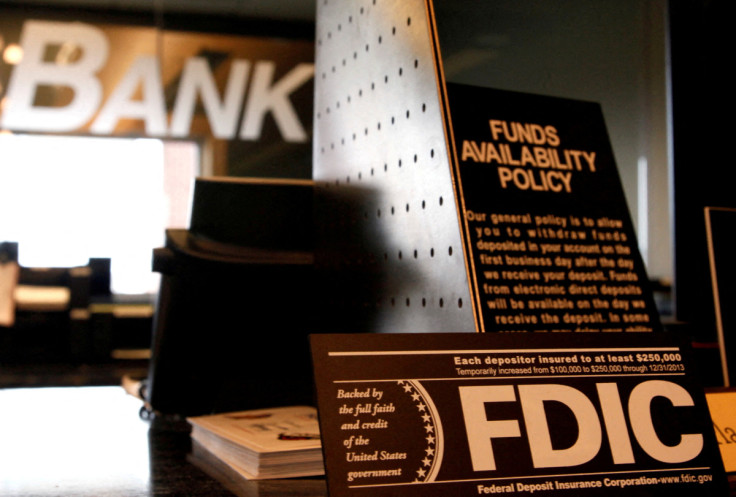US Officials Talked About Raising Deposit Insurance Without Congress-sources

Government officials discussed the idea of increasing deposit insurance without obtaining approval from Congress as they brainstormed various approaches to solving the turmoil in banking, two sources familiar with the talks said on Tuesday.
The idea, potentially to use the Treasury Department's Exchange Stabilization Fund, was first floated by government officials in the flurry of conversations between the Federal Reserve, Treasury Department and Federal Deposit Insurance Corporation in the days after Silicon Valley Bank failed on March 10, according to one government source.
The idea was not universally supported, the source said.
A second source familiar with the discussions said the idea was discussed but emphasized that while a temporary solution without congressional approval had been discussed, any permanent action would require congressional approval. That source said that they did not think such a measure was necessary.
News of the talks was previously reported by Bloomberg.
In the immediate fallout of SVB's failure, banks also explored the use of the Exchange Stabilization Fund to backstop a broader deposit guarantee, according to one industry lawyer, as the industry also explored what options could be available. One concern raised is that the fund, which is an emergency reserve last tapped during the 2020 pandemic, only had $38 billion of readily available funds as of Jan. 31.
Under current law, U.S. regulators are supposed to go to Congress when they determine a "liquidity event" requires an increase in the amount the government will guarantee.
The restriction was put in place among several other curbs on regulator power following the 2008 financial crisis and ensuing bank bailouts.
Among the concerns raised about using the Treasury fund instead would be the expected criticism from Congress, and potential concerns over its legality, according to the government source.
"I think that's a hard argument, you look at the language ... it says the FDIC should provide guarantees in times of stress, but that it requires approval under this streamlined process," said Sheila Bair, who chaired the FDIC during the 2008 crisis. "I think it's questionable."
Spokespeople for the White House, Fed, and FDIC declined to comment.
The Treasury declined to comment on any discussions, but a spokesperson said, "Due to decisive recent actions, the situation has stabilized, deposit flows are improving and Americans can have confidence in the safety of their deposits."
On Tuesday, Deputy Treasury Secretary Wally Adeyemo said "decisive action" taken by the Treasury, Fed and FDIC to protect depositors and ensure liquidity for other banks had stabilized the banking system, but a review of the banks' failures was in order.
"It's ... important that we review the failures of the two banks in question to ensure we have a set of rules and procedures for the banking system that continues to protect our economy and depositors across the country," Adeyemo said at an event hosted by the U.S. Hispanic Chamber of Commerce.
"We of course continue to monitor the current situation and consider what steps can be taken to further strengthen America's financial stability," he said, without elaborating.
© Copyright Thomson Reuters 2024. All rights reserved.





















